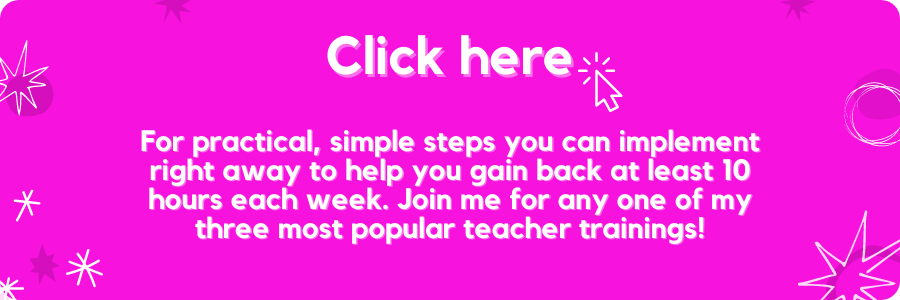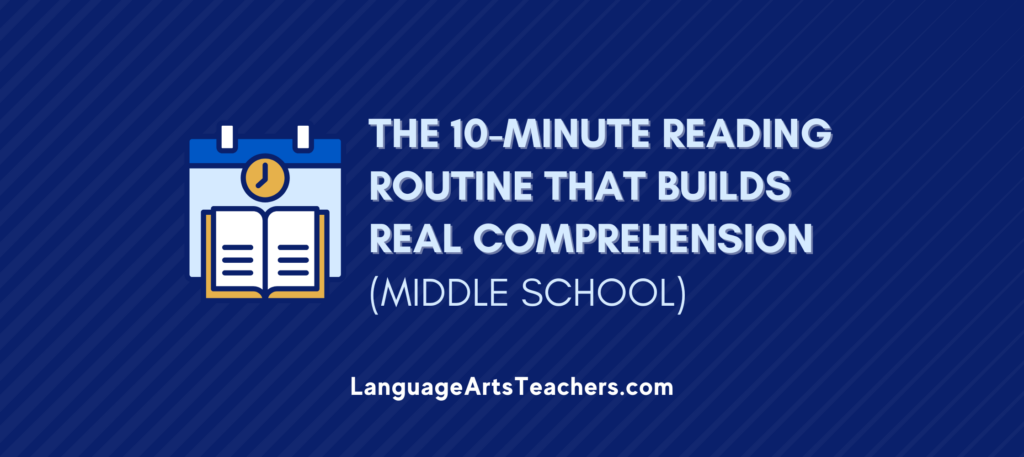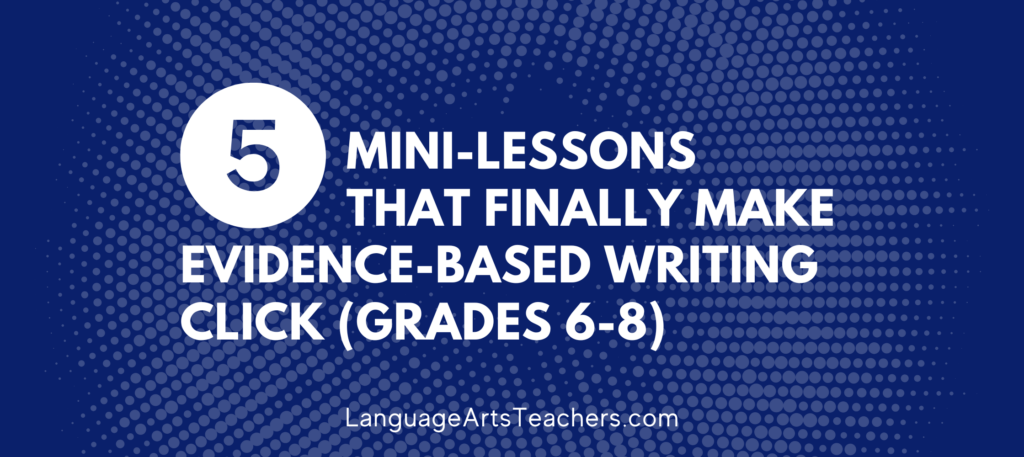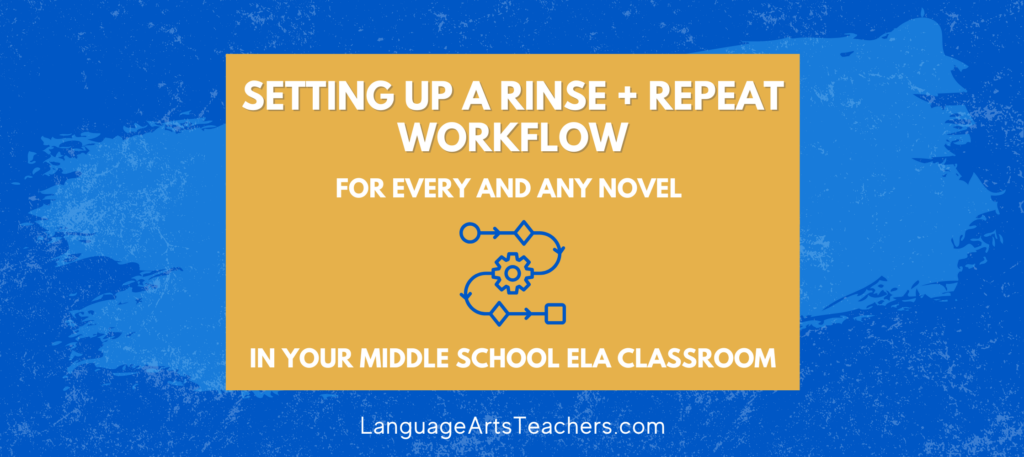What to do when you feel like you:
- Made the wrong choice to be a Middle School ELA Teacher
- Aren’t making progress with low scores or poor test results
- Can’t keep up with the constantly growing list of priorities admin piles on you
- Are drowning under the weight (literal or figurative) of everyone else’s needs
- Don’t even have your itty bitty planning period to actually work anymore
I definitely hear you! This is such a struggle and I’m right there, too.
One question to consider is this: Where is the stress actually coming from?
Is the stress coming from the students, or from parents, or from admin requirements, or from ALL of that?
I know for me, I do experience ALL the stress from all the sources I just named, but really when it comes down to it, the source usually comes from how low my students are (please don’t judge me for saying that—I’m just being real here!) and how much they need stacked upon the pressure to “get them caught up” from parents and admin.
All the other requirements, and mandates, and to-do’s typically stem from that issue right there. And rightfully so! I mean, we HAVE to do something.
But it’s a lot!
If this is you, too, Middle School ELA Teacher, then you’re in the right place.

The first thing I 100% recommend (and I have to remind myself of this all the time, too) is that we have to be ok with simply not doing as much. There’s SO much our kiddos need and SO very much they just don’t know and the gaps are scary and wide…But really, we simply can’t do all the things we need and want to do for them. We all only have 168 hours each week.
All of us!
There’s literally only so much we can do in the 45 minutes (or 60 or 90) that we have.
So we have to be ok with scaling way back, even though we feel allll the pressure to do allll the things.
Here’s what that may look like from a practical, Middle School ELA standpoint:
– Doing a lot of read-alouds (either you reading aloud or finding a recording online like on YouTube) so students can listen and follow along. I like to record myself reading and then just have that available to play so I can save my voice. Plus, for absent kids, it’s nice to provide an audio recording.
– Doing only half (maybe not even that much) of the activities you know you could or should be doing. Skipping some things and / or only doing 2-3 of a 5 or 10 question discussion set.
– Taking all week to do what *should* have only taken two days. It’s ok, even if someone else is telling you it’s not.
– Spending time on what an activity’s directions actually are… Or spending time just talking about what each question is asking (so many kids don’t even know what a question means or is asking them to do). I can’t even begin to add up the amount of time, frustration, and chaos just that one tip alone has saved me and my students.
On top of that, let’s address the stress that student apathy brings to the table, too. I mean, we’re putting it all out there and again, I’m being real here! Too many students feel like they simply don’t have to do the work at all because… Do the work or else what, exactly?
So there’s the lack of intrinsic motivation, too. Many have “gotten away with” not having to do anything for quite some time now and there is this mentality of “it’s too hard” and “or else what” when it comes to actual thinking and working.
Combine that with a serious gap in skills and it’s a disaster.
But, there are kids who are craving the structure of school and the structure of your classroom and the attention of the teacher. There are kids who do want to escape into a story.
This is where the read-alouds can be effective and helpful. This is where focusing on doing less (but doing it better and allowing time to get comfortable with what a question is even asking) can be so beneficial.
Will ALL your students come around?
No… But little by little, some of them will.
And for others, it may take the whole year and part of next year, too.
I do believe we’re going to see the effects of students missing school for such a long time (cough, thanks ‘Rona) for years to come.
But I don’t say that to discourage anyone.
I say that because I hope we can all take a deep breath each day, and give ourselves the grace to realize that scaling back is ok and that we’re working with what students are bringing into the class each day.
I have to tell myself the same thing all the time.
One more thing I tell myself that might help you, too, is this: If students leave class each day with a little something more than they walked in with, then I’m helping them grow. That’s a win right there. I can build on that.
I bet you can, too 🙂

And finally, this truth bomb-da-bomb: It’s ok for other teachers or other parents or other administrators to not really like what you’re doing or not doing . . .
Or to never be satisfied . . .
It’s ok for them to feel that way because other people’s thoughts and feelings don’t get free rent in your brain or heart.
You get to feel the way you feel, and you get to do something about it (like scaling way back so you can get the sleep you deserve at night).
Your purpose on this earth is not to make everyone else happy with you.
Your purpose is to live a life you love, make meaningful, life-long connections with others, foster the relationships that you can’t imagine not having, and care for yourself in a way that allows you to give back (can’t pour from an empty cup). If you’re a person of faith, then that brings a whole other purpose to your day-to-day life as well.
^These are all things that are bigger than the stress, overwhelm, and chaos that you deal with on a daily basis as a teacher.




